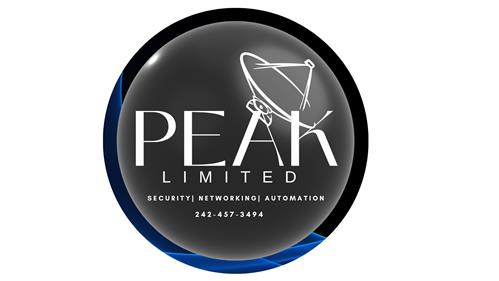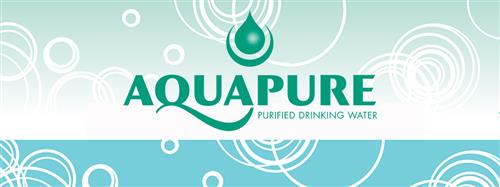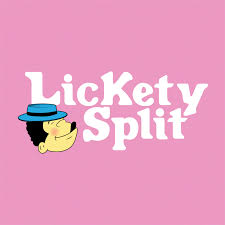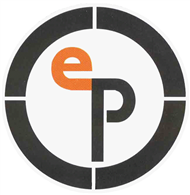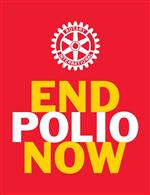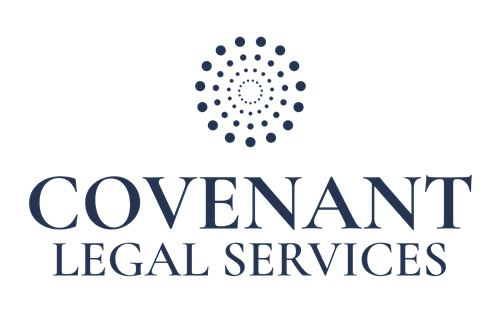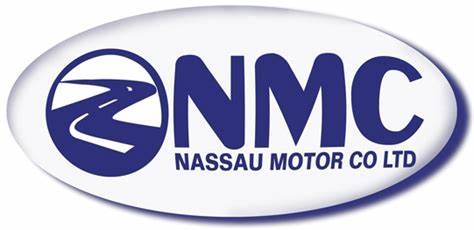Got ethics?
'Work right, play nice, and sleep tight'
The Rotarian
September 2007
The Four-Way Test was developed 75 years ago. To see if it still applies in today's world, Senior Editor Janice S. Chambers talked with two prominent ethicists: H. Woods Bowman and Tom Hooyman.
H. Woods Bowman, Ph.D., a former Illinois state representative, is an associate professor of public services management at DePaul University in Chicago. He also writes "The Nonprofit Ethicist," a column for the Nonprofit Quarterly that the Chicago Tribune called "a kind of 'Ask Amy' for the 501(c)(3) crowd." Tom Hooyman, Ph.D., 2006-07 president of the Rotary Club of Denver Cherry Creek, Colo., USA, is a consultant, trainer, speaker, and assistant professor at Regis University. A full-time ethicist since 1990, Hooyman is on the U.S. Centers for Disease Control and Prevention ethics subcommittee and lives by the motto "Work right, play nice, and sleep tight." Hooyman also runs a Web site about ethics.
Why is there such a hunger for ethics lately?
TH: Is there? When something goes wrong, such as an Enron, or political scandals, ethics is on the front page. However, much of the ethics conversation today is not really about ethics, but the minimal requirements of following the law. Ethics is the foundation for law. Humans have an inherent drive for self-promotion or self- interest. If we can get away with something, we will try. It is organizations like Rotary that call us to a higher standard.
HWB: I think people basically want to do the right thing - even people who wind up not doing the right thing. Sometimes they just can't tell the difference between right and wrong. I got one letter from a guy who says he found a gas station that was selling gas for 30 cents a gallon. It should have been $3 a gallon. So he filled up and got all his friends to fill up and then wondered if maybe he did something wrong. He had such a personal stake in getting the answer he wanted, he just couldn't see any other answer. And that's really what happens in most cases. Our [immediate] self-interest gets tangled up with the right thing to do. Typically, when people fail to take the long view of things, they make decisions they regret later.
Are people more or less ethical than they were a generation or two ago?
TH: Every generation faces its own ethical challenges. We could look back at the founding fathers of the United States and conclude, what a remarkably ethical group of people. Their self-sacrifice and commitment to duty and honor were invaluable for establishing this country. But at the same time that Thomas Jefferson penned the Declaration of Independence, he owned slaves. Are we more ethical today than Jefferson's generation because we don't own slaves? And yet there is a growing economic disparity between the haves and the have-nots. It's difficult to say.
HWB: I think these things come and go. We're all mortals. I don't see any downward spiral, nor do I see perfection in the immediate future. Maybe because I'm an economist, I tend to look for business cycles. My impression is that when the economy is going very well, it brings charlatans out of the woodwork. It's easy to cover up mistakes and incompetence when everything is booming. And then when the cycle turns, these various schemes are exposed. Then we have a whole series of scandals that get reported in the paper, and it looks like things are really taking a nose dive. I think it's a mistake to generalize from short-term trends instead of long-term projections. Again, I think these
things just come and go - which is why there will always be a job for ethicists. [laughs]
Are we in an up or down cycle right now?
HWB: Actually, I think things are improving now. I say that, again, based on my business cycle theory. I think we've had a shakeout in the last few years. Things seem to be back to a more sustainable level - a more normal level, if you will.
So you're not one of those people who think the younger generation is less ethical?
HWB: No. First of all, I'm 65, so almost everyone is in the younger generation. Some generations might be more ethical than others, but it bounces around.
What's the toughest ethical dilemma you've ever faced?
HWB: Decisions to fire people. I probably waited too long to do it, but I had concluded that their continued service would be harmful to the organization I served. I did it without joy.
TH: I have participated in over 700 end-of-life ethical cases when family members are making decisions for loved ones who can no longer make decisions for themselves. Every one of these cases has been the toughest because each is unique and so personal for those involved.
How do I know if my actions are truly ethical?
TH: The first thing is a gut check: If it feels uncomfortable, if you're losing sleep, there's an indication that something is amiss. Ethics involves consistency between our identity and our actions.
How do most people choose to make unethical decisions? What's the tipping point?
HWB: Absent any self-interest, most people will come up with the right answer. But funny things happen in groups. You get caught up in groupthink, and it's so easy to lose perspective. The classic experiment is where a group of students is divided into guards and prisoners, and the guards, who are given total power, end up seriously mistreating the prisoners. A lot of people say, I would never do that. I tell them, sorry, maybe you wouldn't, but enough people do. I'm hopeful they will recognize the warning signs in their own lives when they are starting to lose perspective, because it doesn't happen overnight.
How can Rotary clubs help maintain perspective?
HWB: In many, many situations, the loss of perspective results from group interactions - where somebody in the group, for example, who may be the leader, makes a bad decision, and no one wants to call them on it, so then one thing leads to another until eventually it becomes a mess. I think it's important that people belong to many different groups, and particularly the groups that have a primary emphasis on service and ethics, because that helps them maintain perspective. In other words, if everyone in one group is saying you're being crazy, you're being too ethical, then you go to a Rotary club meeting, and they say no, you're just fine, hang in there.
What are the biggest ethical dilemmas that nonprofits face today?
HWB: The biggest ethical dilemma, since time immemorial, is conflict of interest. People tend to lose perspective when they have a personal stake in the outcome, and that's when they begin to make bad decisions. And there are some nonprofits set up as tax scams. But there aren't lots of them. Also, about five years ago, the U.S. Internal Revenue Service started enforcing a law called intermediate sanctions. Basically, they fine people for making too much money. They only sanctioned about 40 individuals, but they got $20 million back. One of the reasons I think there are problems is that nonprofit organizations are shielded from a lot of public scrutiny, and it's not until something goes horribly wrong that anyone finds out about it. Fortunately, I think most people who work in nonprofits are trying to do the right thing.
And corporations?
TH: Ethical dilemmas for corporations and nonprofits are the same today as they were yesterday - corporate actions aligned with corporate values and mission. There is greater scrutiny today of both corporations and nonprofits to do the right thing, no matter the consequences for the organization. Businesses and nonprofits are discovering that ethical behavior contributes to their overall success.
Can you survive in the for-profit business world by embracing an ethical guide such as The Four-Way Test?
HWB: Sure. You can't put a price on the things you gain, like respect.
How effective is The Four-Way Test?
HWB: When I speak to organizations about ethical codes, I say, look, there's no single code that's going to work for every single organization. The important thing is that it be something that addresses the issues that are likely to come up in that particular organization. It also has to be fairly simple. The other thing is it can't be a bunch of negatives. The Four-Way Test has the supreme virtue of being positive and simple enough to commit to memory. It's a foundation.
TH: It can be effective, but it's confusing. It mixes consequences along with duty, and those are two opposing ethical theories. Will it be beneficial to all concerned? That question just focuses on consequences. Is it the truth? That question presumes we have a duty to tell the truth. So if you can answer two questions positively and two negatively, what do you do with that? I think the benefit of the test is that it begins a conversation, but it doesn't end there.
Is it really possible to be fair to all concerned?
HWB: That means taking the interests of all affected parties into account when making a decision. It's not only possible to be fair to all concerned, it's essential. Maybe you were really wondering, can you make everybody happy at the same time? Unfortunately, this is rarely possible because people often have conflicting interests.
What can Rotarians do to improve ethics where they work?
TH: The easiest way is to align the workplace with the organization's stated identity, or its mission statement. What does it believe in? When you can have consistency with how an organization behaves and how it aligns itself, then you're probably going to have an ethical organization. Of course, that is going to depend on whether the identity is ethical to begin with. For instance, an organization that deals in child slave labor is inherently unethical. Its actions are consistent with its mission, but at the core it's rotten. It's that old adage of walking the talk. Think about it in metaphor: When a car is out of alignment, it just shakes, and you can see and feel that the car is out of alignment. And that can happen with an organization.
HWB: Act ethically. Let subordinates know that you expect ethical behavior from them. Take opportunities to promote a formal system for promoting ethics and policing ethical lapses. And it wouldn't hurt to display The Four-Way Test in your office.
This article is © Rotary International and is provided for the non-profit use of Rotarians worldwide; commercial use is prohibited. The article may be quoted, excerpted or used in its entirety, but the information should not be changed or modified in any way. Read more information in the RI copyright notice.
Download the website sponsorship guide

